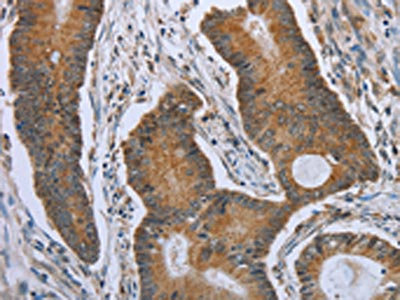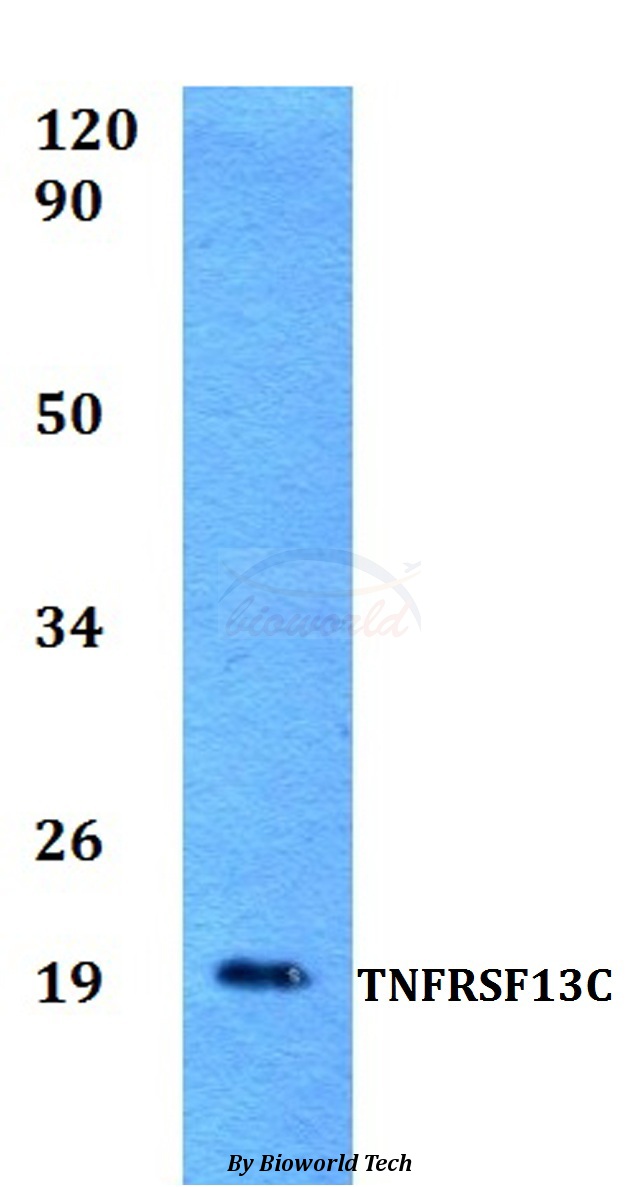
The image on the left is immunohistochemistry of paraffin-embedded Human colon cancer tissue using CSB-PA249091(TNFRSF13C Antibody) at dilution 1/40, on the right is treated with synthetic peptide. (Original magnification: x200)
TNFRSF13C Antibody
CSB-PA249091
ApplicationsELISA, ImmunoHistoChemistry
Product group Antibodies
ReactivityHuman, Mouse
TargetTNFRSF13C
Overview
- SupplierCusabio
- Product NameTNFRSF13C Antibody
- Delivery Days Customer20
- ApplicationsELISA, ImmunoHistoChemistry
- CertificationResearch Use Only
- ClonalityPolyclonal
- ConjugateUnconjugated
- Gene ID115650
- Target nameTNFRSF13C
- Target descriptionTNF receptor superfamily member 13C
- Target synonymsBAFF-R, BAFFR, BROMIX, CD268, CVID4, prolixin, tumor necrosis factor receptor superfamily member 13C, B cell-activating factor receptor, BAFF receptor, BLyS receptor 3
- HostRabbit
- IsotypeIgG
- Protein IDQ96RJ3
- Protein NameTumor necrosis factor receptor superfamily member 13C
- Scientific DescriptionB cell-activating factor (BAFF) enhances B-cell survival in vitro and is a regulator of the peripheral B-cell population. Overexpression of Baff in mice results in mature B-cell hyperplasia and symptoms of systemic lupus erythematosus (SLE). Also, some SLE patients have increased levels of BAFF in serum. Therefore, it has been proposed that abnormally high levels of BAFF may contribute to the pathogenesis of autoimmune diseases by enhancing the survival of autoreactive B cells. The protein encoded by this gene is a receptor for BAFF and is a type III transmembrane protein containing a single extracellular cysteine-rich domain. It is thought that this receptor is the principal receptor required for BAFF-mediated mature B-cell survival.
- ReactivityHuman, Mouse
- Storage Instruction-20°C or -80°C
- UNSPSC41116161





